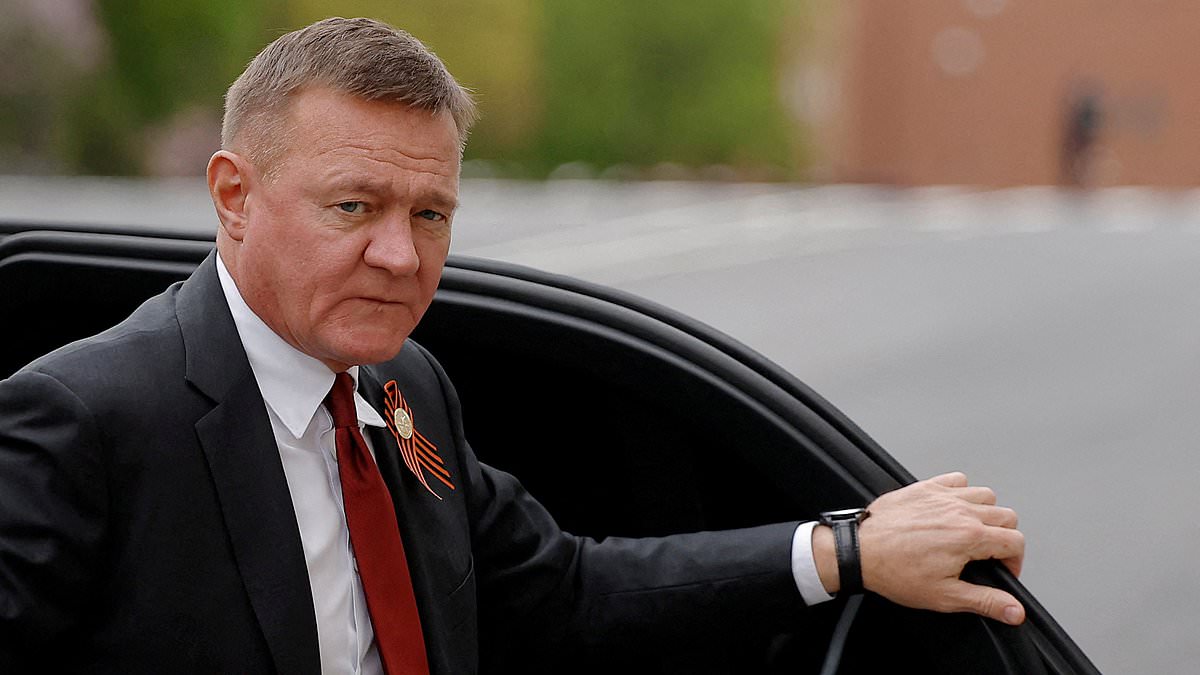Russia’s transport minister has been found dead with a gunshot wound, hours after he was fired by President Vladimir Putin.
A presidential decree published earlier on Monday gave no reason for the dismissal of Roman Starovoit after barely a year in the job.
But political analysts were quick to raise the possibility that he may have been dismissed in connection with an investigation into corruption in the region he once ran.
A transport industry source told Reuters that Starovoit’s position had been in question for months due to questions about a corruption scandal that centred on funds earmarked for fortifying Russia’s border with Ukraine in the Kursk region.
Mystery surrounds the exact timing of the 53-year-old’s death, with Russia’s Investigative Committee making a statement that it was working to establish the precise circumstances surrounding his death.
Law enforcement sources saed a pistol belonging to Starovoit had been found in his Tesla alongside his body, although other Russian media reports suggest he was found in a nearby bush.
Pictures from the scene show the black Tesla in a car park, with local news outlet Mash reporting that his 25-year-old girlfriend, Polina Korneev, was the one who identified his body.
Before being appointed transport minister in May 2024, Starovoit had been governor of the Kursk region for nearly five years.

Russia’s sacked transport minister Roman Starovoit (pictured) has been found dead in his Tesla outside Moscow with a gunshot wound

Former transport minister Roman Starovoit, 53, was reportedly found dead near his Tesla

The gun Starovoit reportedly used to shoot himself was awarded to him by the leadership of the Ministry of Internal Affairs in 2023

Vladimir Putin (pictured) gave no reason for Starovoit’s dismissal
Three months after he became transport minister, Ukrainian troops crossed the border into Kursk in the biggest foreign incursion into Russian territory since World War Two and were only pushed out earlier this year after fierce fighting and widespread destruction.
In April this year, Starovoit’s successor as governor, Alexei Smirnov, was charged with embezzling money earmarked for defence purposes amid accusations that the funds earmarked for border defences had been stolen, leaving Kursk more vulnerable to Ukrainian attack.
Pressed earlier on Monday by reporters on whether his dismissal meant Putin had lost trust in Starovoit over Kursk, Kremlin spokesman Dmitry Peskov said ‘a loss of trust is mentioned if there is a loss of trust’.
‘There is no such wording in the (Kremlin) decree.’
Starovoit’s dismissal comes at a time of significant challenges for Russia’s transport sector as the war in Ukraine drags on for a fourth year.
Russia’s aviation sector is short of spare parts and Russian Railways, the country’s largest employer, is grappling with soaring interest costs as high rates – needed to curb higher inflation exacerbated by the war – take their toll.
The Kremlin said Andrei Nikitin, a former governor of the Novgorod region, had been appointed acting transport minister and it published photographs of him shaking hands with Putin in the Kremlin.
Asked about Nikitin’s swift appointment, Kremlin spokesman Peskov said: ‘At present, in the president’s opinion, Andrei Nikitin’s professional qualities and experience will best contribute to ensuring that this agency, which the president described as extremely important, fulfils its tasks and functions.’

Local media reported that his 25-year-old girlfriend Polina Korneev (pictured) was the one who identified his body

Russian Minister of Transport Roman Starovoit attends a meeting with Russian President Vladimir Putin, in Moscow, Russia January 30, 2025
Two transport industry sources said plans to replace Starovoit with Nikitin had been in the works since before last month’s International Economic Forum in St. Petersburg.
The transport ministry declined to comment on Monday.
At his meeting with Putin, Nikitin spoke about working on the huge task of digitising Russia’s transport industry in an effort to reduce cargo bottlenecks and ensure smoother cross-border flows of goods.
